Success at DSB Conference
Fanni Keresztes' (PhD student of our research group) Flash Poster was awarded at the DSB Conference of Eötvös Loránd University. Congratulations and best wishes for further success.
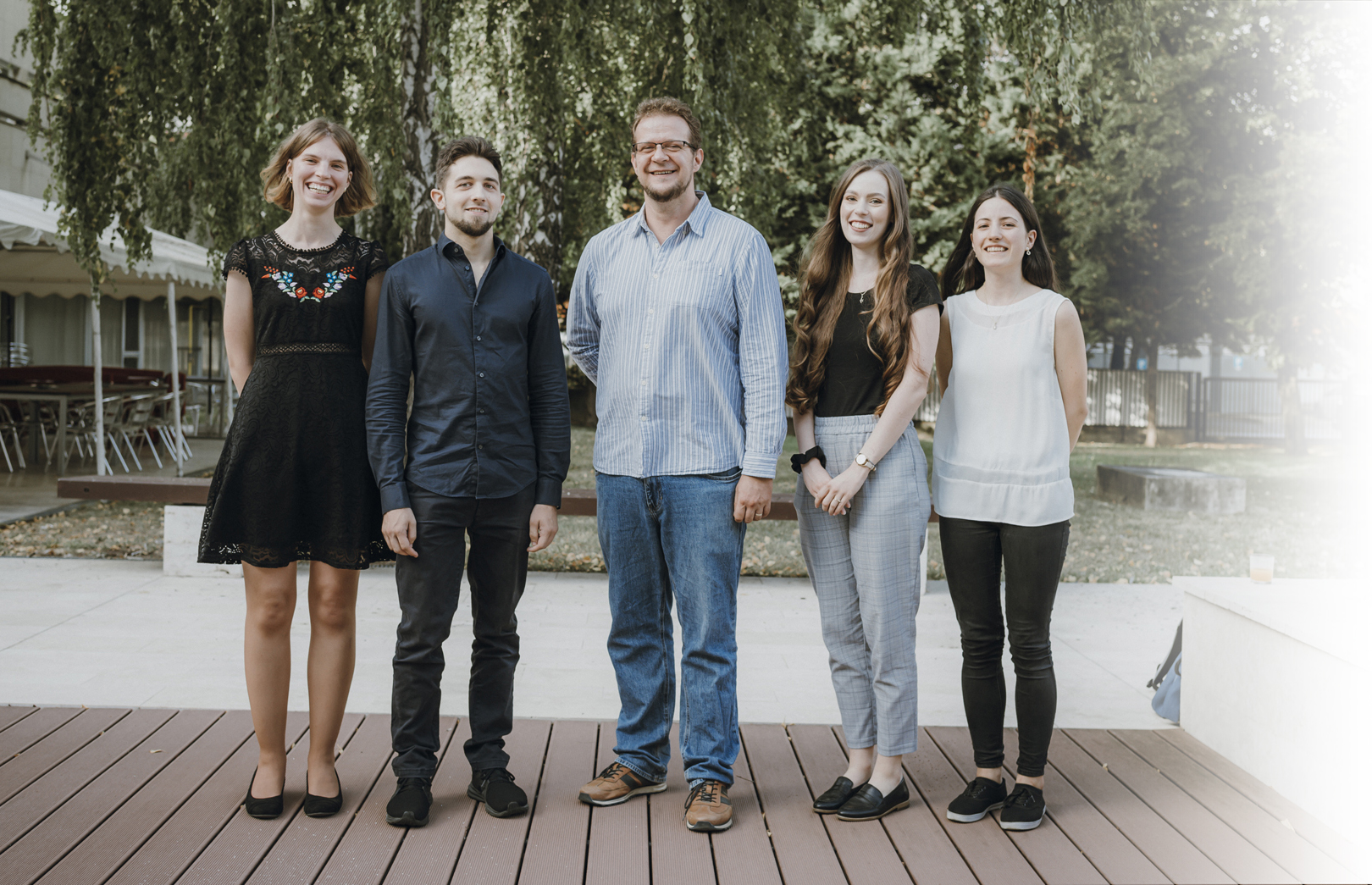
One of our time's serious health and economic problems is the increasing ageing of the population in developed societies. Increased longevity is associated with the risk of many diseases of old age (muscular degeneration, diabetes, neurodegenerative diseases, cancer, etc.). We must invest more and more energy and resources in the symptomatic treatment of neurodegenerative diseases, which are still incurable. Therefore, research of a kind that contributes to the number of active and healthy years over an extended life span is not only of holistic but also social and economic importance. The main goal of our research group is to discover new regulatory points to improve the quality of life in old age and prevent the onset of many neurodegenerative diseases. For ageing, the survival of nerve cells is essential, as these cells cannot divide and, if they die, tissue regeneration is not possible. Autophagy is a cell-protective degradative process in which cells eliminate their harmful components, while gaining essential components for energy and anabolic processes. Through this degradation, the cell can also eliminate toxic molecules (e.g. damaged, malfunctioning mitochondria, mutant Huntingtin, α-synuclein proteins, etc.) that are involved in neurodegenerative diseases. Currently available autophagy activators are not specific enough and can cause a number of adverse side effects. We expect our findings to identify new regulatory points that can be used to specifically activate autophagy degradation steps that promote cell survival. These new regulatory points could be used to design drug candidates to prevent the progression of dementia or neurodegenerative diseases in later life.
Drosophila melanogaster is one of the best-known model organisms, and research and research on it can easily and rapidly yield results that can be conserved throughout the eukaryotes. Drosophila genome contains the ortholoques of more than 70% of the genes that cause human diseases, and is one of the best researched model organisms in autophagy. Drosophila is also an excellent candidate for research of ageing and neurodegeneration, due to its short lifespan and the fact that its nervous system is composed of neurons (many neurotransmitters are identical) and glia cells similar to humans. In our experiments, our research group uses a combination of classical genetic, cell imaging and molecular tools. Our research involves the investigation of several neurodegenerative models (Parkinson's disease, Huntington's disease, SCA1) from a pharmacological and genetic point of view.
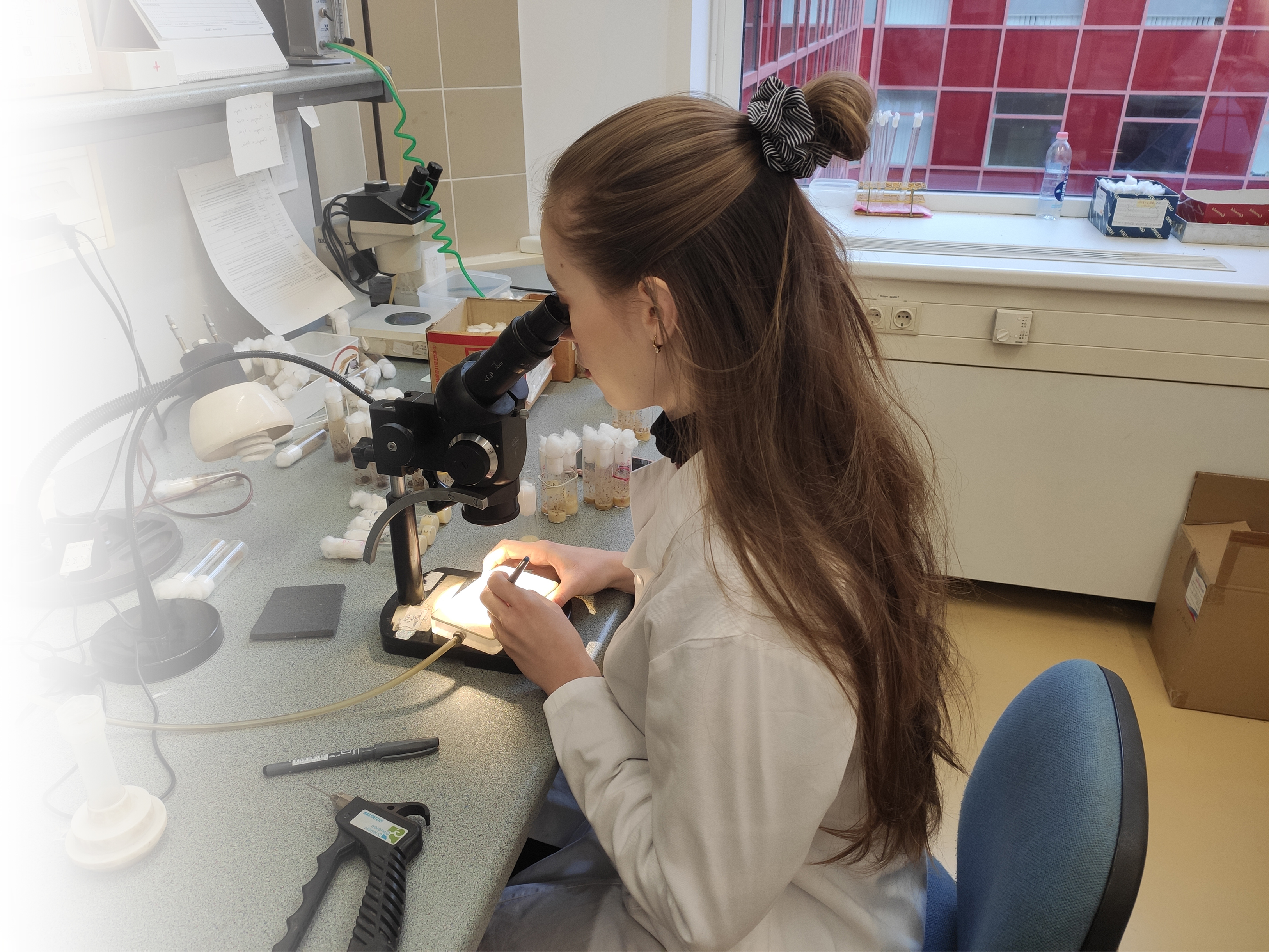
Fanni Keresztes' (PhD student of our research group) Flash Poster was awarded at the DSB Conference of Eötvös Loránd University. Congratulations and best wishes for further success.
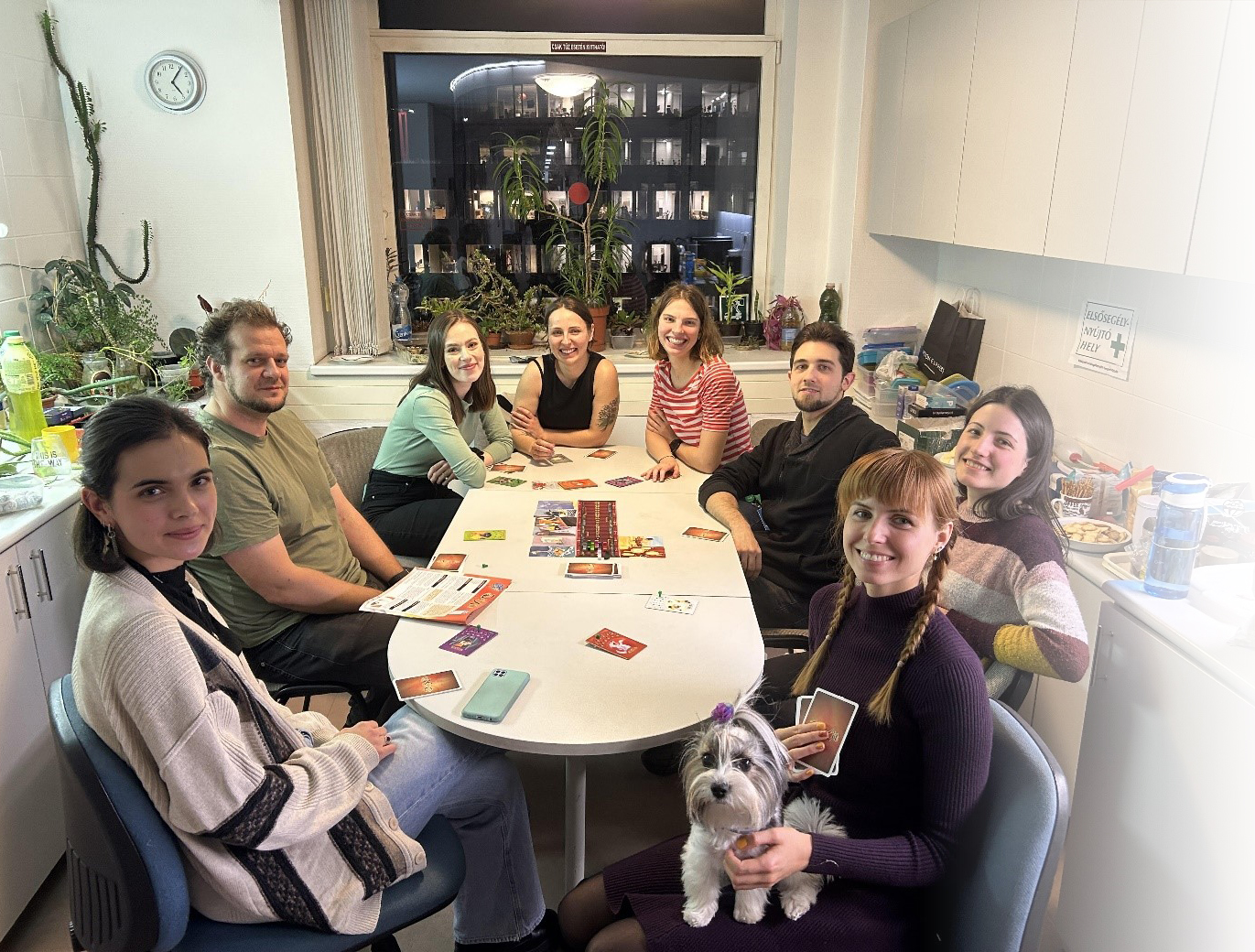
We celebrated a successful 2023 year with a game of board games.
In 2023, we published three D1-rated publications. We were awarded a three-year laboratory foundation
grant, and our PhD students were awarded a scholarship. Our students won one national and one local
science competition. Tibor Kovács (group leader) was awarded the Pro Ingenio prize for his persistent and
effective work in talent management.
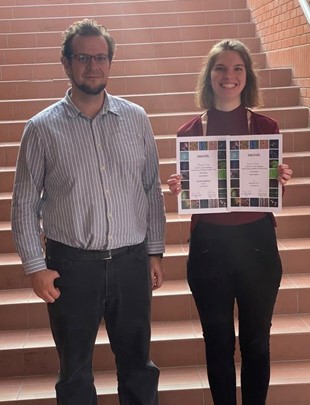
Tímea Burján, MSc student of our research group, was awarded first place at the Scientific Student
Conference of Eötvös Loránd University in the field of Genetics. We wish her further success at the
national
competition.
Link to the article
We have won a group establishment grant from the University Excellence Fund of Eötvös Loránd University.
Our research aims to characterize novel autophagy activation sites and develop related pharmacological
agents. This grant will support three staff members.
Link to the article
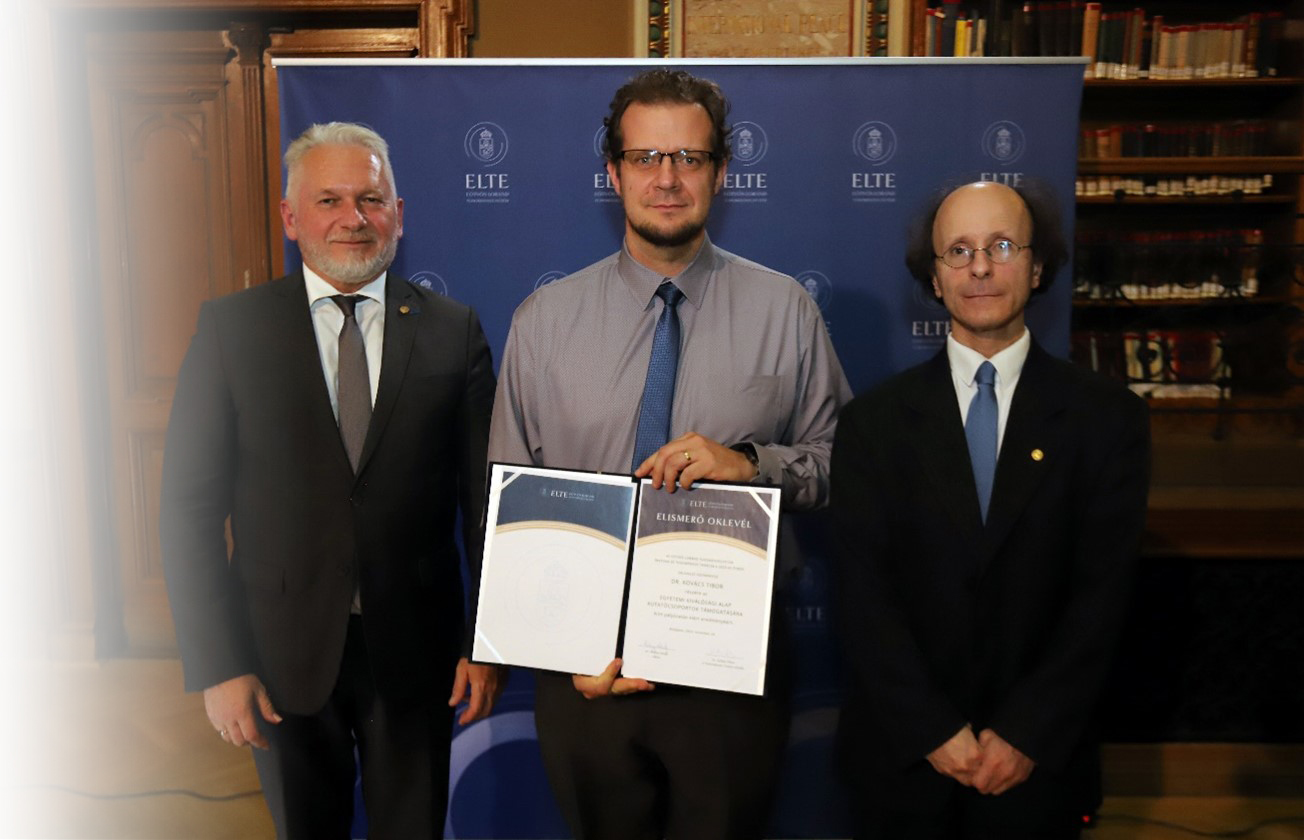
Two talented doctoral students of our research group, Fanni Keresztes and Gergő Falcsik have been awarded the Doctoral Excellence scholarship. We wish them further success in their research careers. The scholarship will last for the rest of their funded doctoral period. To encourage innovative work, the application conditions include the submission of a patent.

